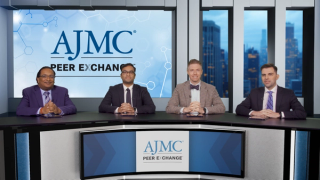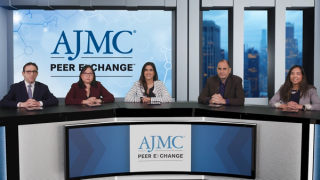
Clinical
Latest News

Latest Videos

CME Content
More News

Raludotatug deruxtecan (R-DXd) earned FDA breakthrough designation for CDH6-expressing platinum-resistant ovarian cancers after bevacizumab (Avastin; Genentech) treatment.
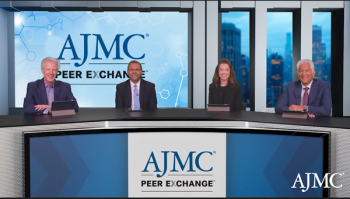
Panelists discuss how heart failure affects 1 in 4 people over their lifetime with 7 million current cases in the US, while Optum Health has implemented an innovative screening program using symptom questionnaires, BNP testing, and echocardiograms for patients over age 60 years during wellness visits.

There are clear benefits to starting biologic therapy earlier for severe asthma, as well as initiation patterns by ethnicity, according to data at ERS Congress 2025.

Panelists discuss how heart failure creates a massive economic burden of approximately $30 billion annually (expected to reach $70 billion to $80 billion by 2030), driven by hospitalizations, readmissions, expensive multidrug regimens costing over $20,000 to $30,000 per patient, and high-cost interventions like ablations and advanced therapies.

Oncology stakeholders are navigating new policies as the landscape quickly evolves, according to Ryan Haumschild, PharmD, MS, MBA, CPEL.

Teamwork between primary care providers and oncologists helps patients get needed care and achieve better results, according to Mark Fendrick, MD, at the Patient-Centered Oncology Care (PCOC) conference.

Broader integration of artificial intelligence (AI) in precision oncology depends on overcoming barriers such as trust and transparency, according to Davey Daniel, MD.
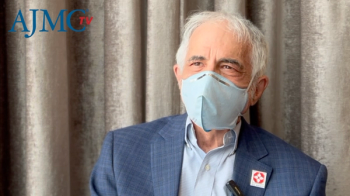
Patients with hematologic malignancies face ongoing survivorship challenges as providers struggle to coordinate care, according to Brian Koffman, MDCM, DCFP, FCFP, DABFP, MSEd.

The evolving treatment landscape for unfit patients with newly diagnosed acute myeloid leukemia (AML) centers on venetoclax combination and personalized strategies.
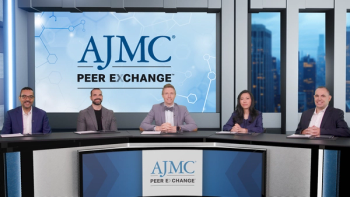
Panelists discuss how successful access initiatives include integrated specialty pharmacies, community-based clinics, clinical trial opportunities, telehealth services, and financial assistance programs like 340B to serve underserved populations with atopic dermatitis.

Panelists discuss how diverse clinical trial data help build patient trust by demonstrating therapy effectiveness in similar populations and address barriers like health care mistrust and representation in treatment development.
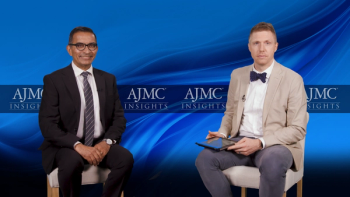
Panelists discuss how negative symptoms of schizophrenia differ from positive and cognitive symptoms, explaining that negative symptoms involve withdrawal, flat affect, and poverty of thought rather than the more visible hallucinations and delusions of positive symptoms.

Explore cutting-edge discussions on patient-centered oncology, value-based care, AI innovations, and survivorship strategies Thursday and Friday at PCOC 2025 in Nashville.
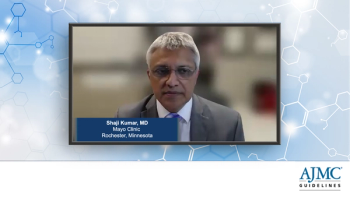
Shaji Kumar, MD, Mayo Clinic, touches on the complexities of the drug approval process and examines how manufacturing challenges can delay FDA approval. He also returns to the guidelines update and their call to tailor treatment intensity overall and ensure equitable care for Black or African American individuals.

Shaji Kumar, MD, Mayo Clinic, highlights linvoseltamab’s dosing regimen, adverse effect profile, and management strategies. He speaks in particular about cytokine release syndrome, which although common, is typically mild and of short duration, and of proactive prophylaxis to mitigate the risk of severe infection.

Cemiplimab demonstrated a 56% overall survival rate, making it a potential option for physicians to use for treating non–small cell lung cancer (NSCLC).

Refat Rasul Srejon, MPH, recommends employer coverage for substance use care and follow-up, plus research on local treatment and drug trends.

Patients with acute myeloid leukemia (AML) in remission for over 3 years experience survival rates comparable with a matched cohort from the general population.

Female patients with chronic spontaneous urticaria (CSU) face greater disease severity and burdens, particularly in midlife, a study found.

This case highlights the diagnostic complexity and clinical management challenges of dual hematologic malignancies.

Findings from the ROCKET-SHUTTLE trial reveal the benefits of combining the anti-OX40 monoclonal antibody with topical therapies for atopic dermatitis.

Panelists discuss how recent clinical trials like ADmirable and DISCOVER intentionally enrolled patients with skin of color (Fitzpatrick types IV-VI), demonstrating similar efficacy and safety profiles for biologics across diverse racial populations, with more than 70% achieving a 75% or greater improvement in the Eczema Area and Severity Index (EASI-75).

Panelists discuss how historical underrepresentation of patients with darker skin tones in clinical trials has limited understanding of treatment efficacy and safety across diverse populations, hampering real-world clinical decision-making.

Efgartigimod shows promising early response in generalized myasthenia gravis, especially in patients with short disease duration and severe bulbar symptoms.

Although rarely used in psoriatic arthritis (PsA), combination targeted therapy (CTT) appears to have a safety profile comparable to standard therapy.






